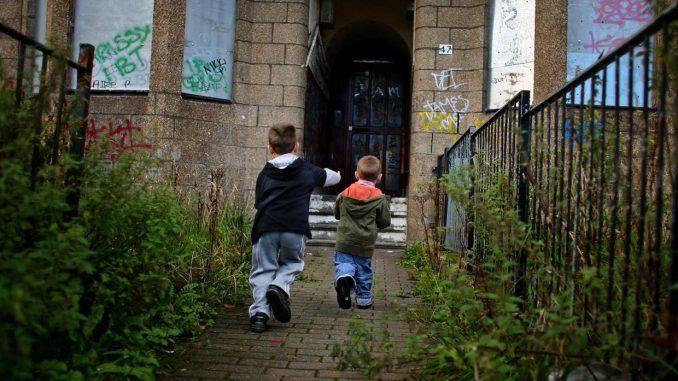
In Britain’s first study into destitution, it has been found that over a million people across the UK are living in such severe poverty they cannot afford to keep warm, stay clean or buy food.
More than three-quarters of destitute people reported going without meals and more than half were unable to heat their home.
The shocking new report revealed that 1.25 million people were destitute in Britain during 2015, 312,000 of which were children

BYPASS THE CENSORS
Sign up to get unfiltered news delivered straight to your inbox.
You can unsubscribe any time. By subscribing you agree to our Terms of Use
RT reports:
The report, which was commissioned by UK charity the Joseph Rowntree Trust (JRT), used a new method to measure the scale of extreme poverty in Britain.
At present, there are no official government estimates of the level of destitution across the UK. But amid growing concern that extreme poverty is on the rise, the JRF commissioned a special report to investigate the matter.
The study was conducted by academics at Herriot-Watt University, a range of other experts and a number of key UK service providers. It took two years to complete, and was published on Wednesday.
New report: 1.25m people, including over 300k children, are destitute #UKdestitutionhttps://t.co/H6GLFKFf6spic.twitter.com/cUiuL59c5q
— Joseph Rowntree Fdn. (@jrf_uk) April 27, 2016
It found that a startling 1.25 million people were destitute during 2015, 312,000 of whom were children. Some 80 percent of these were born in Britain.
While young, single citizens – especially men – were found to be more likely to suffer from extreme poverty, considerable numbers of families were also found to have suffered destitution.
Most severe form of poverty
Destitution is defined as the “most severe form of poverty in the UK,” which leaves people in such financial jeopardy they are unable to afford vital essentials such as food, toiletries and heating.
In order to discern whether an impoverished person can be defined as destitute, the report’s authors said they must lack two or more essentials deemed vital for basic living over a four-week period.
What does it mean to experience destitution in the UK? https://t.co/incqRxBLFGpic.twitter.com/ZyT8fR95oF
— Mike Haw (@mikehaw) April 27, 2016
People who fell into this category included: those who had been forced to sleep rough; had no meal or just one per day over a period of 48 hours or longer; were unable to heat or light their home adequately for five or more days, and lacked weather-proof clothes or had to go without basic toiletries.
No central cause for destitution was uncovered. However, the majority who fell into this category had been impoverished for some time and had arrived at a tipping point that plunged them deeper into financial woe. Key drivers in this respect were spiraling financial costs of ill health, soaring rental and property prices, joblessness, and financial shocks such a delays or sanctions to benefit payments.
Areas rife with destitution
High rates of destitution were uncovered in ex-industrial areas across the northwest and northeast of England, Scotland, South Wales and Northern Ireland, as well as in inner-city London.
Unemployment was rife in these regions, while rates of long-term sickness and disability were also found to be above average.
In-depth interviews with 80 destitute citizens revealed that 30 percent had had their benefits sanctioned. Over 50 percent of this group made a direct link between being stripped of welfare payments and failing to meet the cost of basic living essentials.
Director of the Institute for Social Policy, Housing, Environment and Real Estate (I-SPHERE) at Heriot-Watt University, Professor Suzanne Fitzpatrick, who was a key author of the report, said destitution severely impacts peoples’ physical and mental health.
1.2 million (300,000 children) in #UKdestitution. Disgraceful, tragic, heartbreaking. We need more than words now. pic.twitter.com/NaMgT65xpb
— FoodPoverty (@foodpoverty) April 27, 2016


